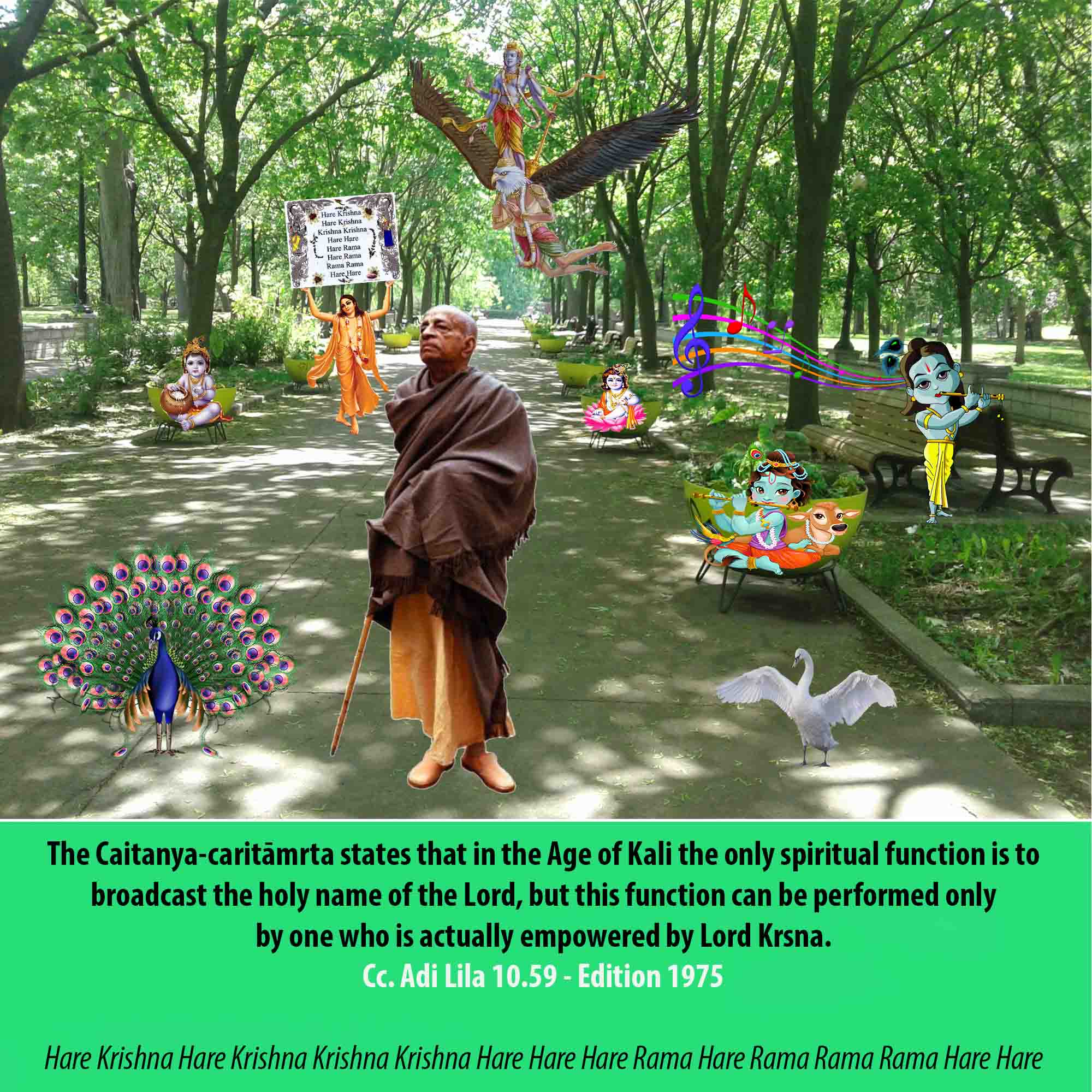
TRANSLATION
In his body there were symptoms of āvirbhāva. Such appearances are uncommon, but Lord Caitanya Mahāprabhu displayed many such pastimes through His different features.
PURPORT
In the Gaura-gaṇoddeśa-dīpikā (74) it is said that Nakula Brahmacārī displayed the prowess (āveśa) and Pradyumna Brahmacārī the appearance (āvirbhāva) of Śrī Caitanya Mahāprabhu. There are many hundreds and thousands of devotees of Lord Caitanya among whom there are no special symptoms, but when a devotee of Lord Śrī Caitanya Mahāprabhu functions with specific prowess, he displays the feature called āveśa. Śrī Caitanya Mahāprabhu personally spread the saṅkīrtana movement, and He advised all the inhabitants of Bhāratavarṣa to take up His cult and preach it all over the world. The visible bodily symptoms of devotees who follow such instructions are called āveśa. Śrīla Śivānanda Sena observed such āveśa symptoms in Nakula Brahmacārī, who displayed symptoms exactly like those of Śrī Caitanya Mahāprabhu. The Caitanya-caritāmṛta states that in the Age of Kali the only spiritual function is to broadcast the holy name of the Lord, but this function can be performed only by one who is actually empowered by Lord Kṛṣṇa. The process by which a devotee is thus empowered is called āveśa, or sometimes it is called śakty-āveśa. Pradyumna Brahmacārī was formerly a resident of a village known as Piyārīgañja in Kālnā. There is a description of him in the Antya-līlā of Śrī Caitanya-caritāmṛta, Second Chapter, and in the Antya-līlā of Śrī Caitanya-bhāgavata, chapters Three and Nine.

